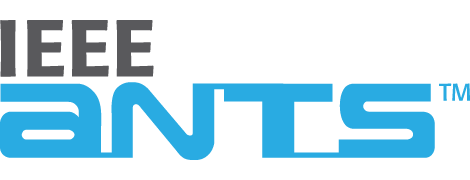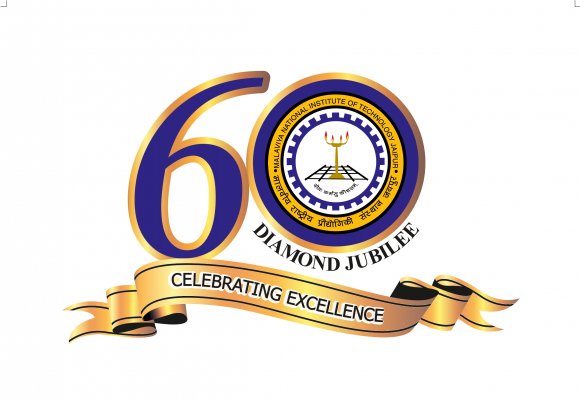AI/ML-Enabled Connected and Autonomous Vehicles in the Era of 6G Sponsored by Wireless World Research Forum (WWRF)
Panel Lead/Moderator: Dr. Seshadri Mohan
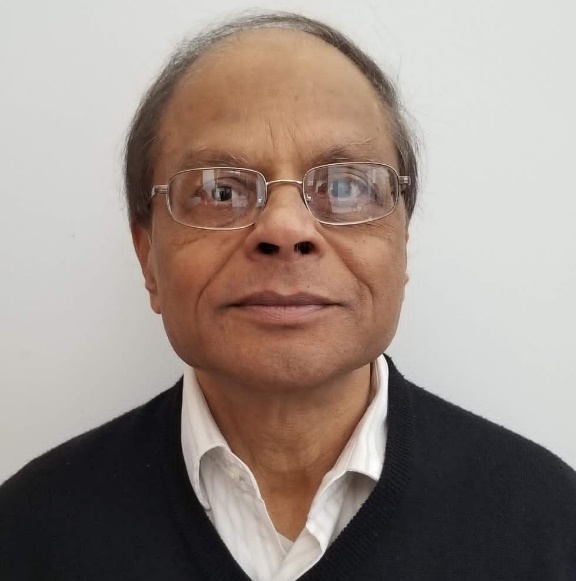
Bio: Dr. Seshadri Mohan is currently a professor in School of Engineering Engineering Technology at University of Arkansas at Little Rock, where, from August 2004 to June 2013, he served as the Chair of the Department of Systems Engineering. Prior to the current position he served as the Chief Technology Officer (CTO) and Acting CEO of IP SerVoniX, where he consulted for several telecommunication firms and venture firms, and served as the CTO of Telsima (formerly known as Kinera). Besides these positions, his industry experience spans a decade at New Jersey-based Telcordia (formerly Bellcore) and Bell Laboratories. Prior to joining Telcordia, he was an associate professor at Clarkson and Wayne State Universities. He has authored/coauthored over 150 publications in the form of books, patents, and papers in refereed journals and conference proceedings with citations to his publications in excess of 6670. He is the inventor of 15 inventions with US and international patents. He has co-authored the textbook Source and Channel Coding: An Algorithmic Approach. He has also served as a Guest Editor for several Special issues of IEEE Network, IEEE Communications Magazine, ACM MONET and Wireless Personal Communications. In April 2011, he was awarded the 2010 IEEE Region 5 Outstanding Engineering Educator Award. He received the best paper award for the paper “A Multi-Path Routing Scheme for GMPLS-Controlled WDM Networks,” presented at the 4th IEEE Advanced Networks and Telecommunications Systems conference. He is a co-founder of the startup IntelliNexus, LLC. He holds a Ph.D. degree in electrical and computer engineering from McMaster University, Canada, the Master’s degree in electrical engineering from the Indian Institute of Technology, Kanpur, India, and the Bachelor’s degree in Electronics and Telecommunications from the University of Madras, India.
Contact: Dr. Seshadri Mohan, University of Arkansas at Little Rock, sxmohan@ualr.edu
Panelists: Dr. Ebtesam Almazrouei
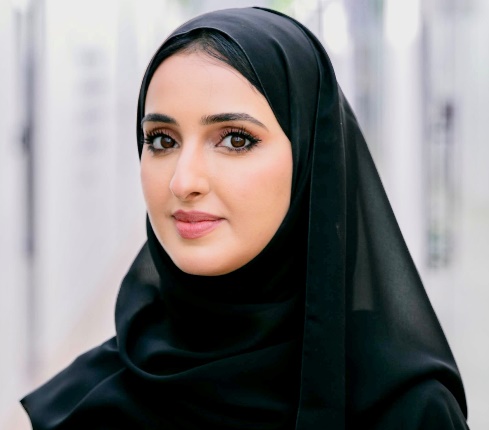
Bio: Dr. Ebtesam Almazrouei is Executive Director, Acting Chief AI Researcher, and Co Founder for the Al-Cross Center Unit (AICCU) at the Technology Innovation Institute (TII). She is a renowned leader and visionary in the field of artificial intelligence (AI) and technology. With a wealth of knowledge and experience, she has made significant contributions to AI research, development, and innovation - earning her a distinguished reputation in the industry.Dr. Almazrouei is recognized worldwide for her contributions to AI and was featured in Leading AI Women in the World in 2023 list, alongside other distinguished women in the field. She also received the Global Leadership Women in Tech® MENA Award in 2023. Dr. Almazrouei is an advocate for sustainability and AI for Good initiatives, as well as the general chair of Abu Dhabi AI Connect and TPC chair of many IEEE international conferences.
Dr. Almazrouei’s leadership and expertise have been vital in the successful development of TII’s Falcon LLM models (home-built rivals to ChatGPT), which significantly outperform models from giant tech companies. Her commitment to pushing the boundaries of AI innovation and her instrumental role led to the creation of the Middle East’s first homegrown, open-source large language model (LLM), Falcon 40B for use in research and commercialization. Following the phenomenal success of Falcon 40B, she then launched Falcon 180B, an advanced iteration of its predecessor and the world’s most powerful open AI model. Additionally, Dr. Almazrouei led the development of NOOR, the largest Arabic LLM model in 2022.
Her contributions extend beyond her work at TII where she leads the big data expert subcommittee of the UAE Council for AI and Blockchain and is a member of the worldwide steering board of the Wireless World Research Forum (WWRF). She is also a member of the Science and Engineering Advisory Board at Sorbonne University Abu Dhabi (SUAD). She is a scientific author, patent inventor, entrepreneur, and renowned speaker, known for her keynote speeches at prestigious summits such as the CogX Festival 2023- London UK, AI Summit in London, World AI Cannes Festival, and Tech summits.
Dr. Ebtesam Almazrouei previously worked in the telecommunications industry delivering business solutions for companies like BT, Etisalat, and KU where she leveraged her expertise to develop advanced tech solutions and products for stakeholders across multiple industries on the Internet of Things (IoTs), autonomous vehicles and drones, wireless localization, intelligence systems, 5G and beyond.
Contact: Dr. Ebtesam Almazroui, Technology Innovations Institute, Abu Dhabi, UAE, Ebtesam.Almazrouei@tii.ae
Panelists: Dr. Klaus David
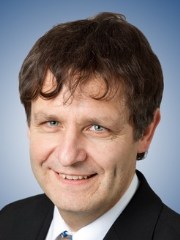
Bio: Dr. Klaus David (david@uni-kassel.de) is a full university professor and head of communication technology at Kassel University, Germany. His research interests include mobile networks, applications, and context awareness, and AI. He has 12 years of industrial experience in major companies like HP, Bell Northern Research, IMEC, T-Mobile (as Head of Group and UMTS project leader) and IHP (as Head of Department), with in total five years of international experience in the UK, Belgium, USA, and Japan. He has published over 200 scientific articles, including 3 books, and has registered over 10 patents. He is active in IEEE (Editor in Chief IEEE VT Magazine 2015 - 2018, BoG 2015 - 2017 IEEE VT), WWRF (Wireless World Research Forum) as publication manager and elected SB Member and he is involved in many conferences, such as IST Future Network & Mobile Summit 2012 Berlin as TPC chair or 2013, 14, 15,16 and 18 in IEEE PerCom as TPC member, or General Chair IEEE PerCom 2021. Also, he is a regular technology and strategy consultant to industry as well as co-founder of two start-up companies.
Contact: Prof. Dr.-Ing. Klaus David, University of Kassel, Germany, david@uni-kassel.de
Panelists: Dr. Burak Kantarci
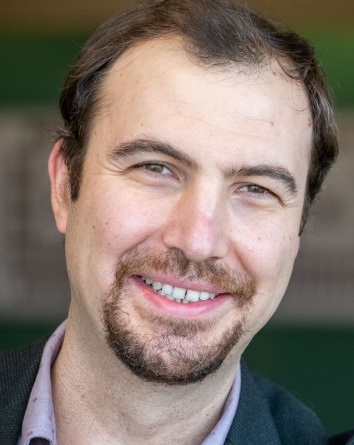
Bio: Dr. Burak Kantarci is a Full Professor and the Founding Director of the Smart Connected Vehicles Innovation Centre (SCVIC) and Next Generation Communications and Computing Networks (NEXTCON) ResearchLab at uOttawa. He holds a Ph.D. degree in computer engineering and is the author/co-author of 250+ publications in established journals and conferences, and 15 book chapters. Continuously listed among the top-cited scientists in telecommunications and networking based on the data reported by StanfordUniversity since 2020, and since 2021, based on data collected from Microsoft Academic Graph, research.com has listed Dr. Kantarci among Canada’s top computer scientists.
Dr. Kantarci holds an Exemplary Editor Award from IEEE Communications Surveys and Tutorials (2021),and multiple best paper awards from various conferences, most recently from IEEE Globecom2021, Wireless World Research Forum 2022, and IEEE ICC2023. He is a recipient of the Minister's Award of Excellence from Ontario Ministry of Colleges and Universities (2021). He was a Distinguished Speaker of the Association of Computing Machinery (ACM) in 2019-2021.Currently he is a Distinguished Lecturer of the IEEE Communications Society and IEEE Systems Council. He has been a keynote/invited speaker or panelist in 40 events. In 2019-2020, Dr. Kantarci chaired the Communications Systems Integration and Modeling Technical Committee of the Institute of Electrical and Electronics Engineers (IEEE). He has been a general chair, program chair or track chair in 30+ international conferences. He is an Editor of the IEEE Communications Surveys and Tutorials, IEEE Internet of Things Journal, an Associate Editor for IEEE Networking Letters, and an Associate Editor for Elsevier Vehicular Communications.
Contact: Dr. Burak Kantarci, University of Ottawa, ON, Canada, Burak.Kantarci@uottawa.ca
Panelists: Dr. Pradipta Biswas
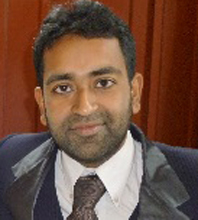
Bio: Dr. Pradipta Biswas is an Associate Professor at the Centre for Product Design and Manufacturing of Indian Institute of Science and co-chair of Study Group 9 at the International Telecommunication Union. His research focuses on user modelling and multimodal human–machine interaction for aviation and automotive environments and for assistive technology. Earlier, he was a senior research associate in the Engineering Department, a research fellow at Wolfson College, and a research associate at Trinity Hall of the University of Cambridge. He completed his PhD in Computer Science at the Rainbow Group of the University of Cambridge Computer Laboratory and Trinity College in 2010 and was awarded a Gates Cambridge Scholarship in 2006.
Contact: Dr. Pradipta Biswas, IISc, pradipta@iisc.ac.in
Panelists: Dr. M. R. Bhavani Shankar
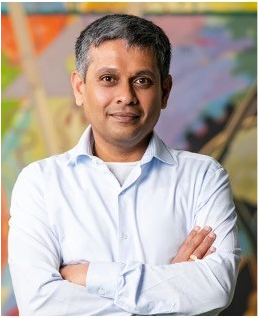
Bio: Dr. M. R. Bhavani Shankar (Senior Member, IEEE) received Masters and Ph. D in Electrical Communication Engineering from Indian Institute of Science, Bangalore in 2000 and 2007 respectively. He was a Post Doc at the ACCESS Linnaeus Centre, Signal Processing Lab, Royal Institute of Technology (KTH), Sweden from 2007 to September 2009. He joined SnT in October 2009 as a Research Associate and is currently a Senior Research Scientist/ Assistant Professor at SnT leading the SPARC (Signal Processing Applications in Radar and Communications). He was with Beceem Communications, Bangalore from 2006 to 2007 as a Staff Design Engineer working on Physical Layer algorithms for WiMAX compliant chipsets. He was a visiting student at the Communication Theory Group, ETH Zurich, headed by Prof. Helmut Bölcskei during 2004. Prior to joining Ph. D, he worked on Audio Coding algorithms in Sasken Communications, Bangalore as a Design Engineer from 2000 to 2001. His research interests include Design and Optimization of MIMO Communication Systems, Automotive Radar and Array Processing, polynomial signal processing, Satellite communication systems, Resource Allocation and Fast Algorithms for Structured Matrices.
He is currently the Chair of the IEEE Benelux joint chapter on communications and vehicular technology, member of the Sensor Array Mulichannel (SAM) Technical Committee of Signal Processing Society, serves as handling editor for Elsevier Signal Processing and member of the EURASIP Technical Area Committee on Theoretical and Methodological Trends in Signal Processing. He was a co-recipient of the 2014 Distinguished Contributions to Satellite Communications Award, from the Satellite and Space Communications Technical Committee of the IEEE Communications Society.
Contact: Dr. M. R. Bhavani Shankar, bhavani.shankar@uni.lu
Panelists: Prof. Dr. Sachin Sharma
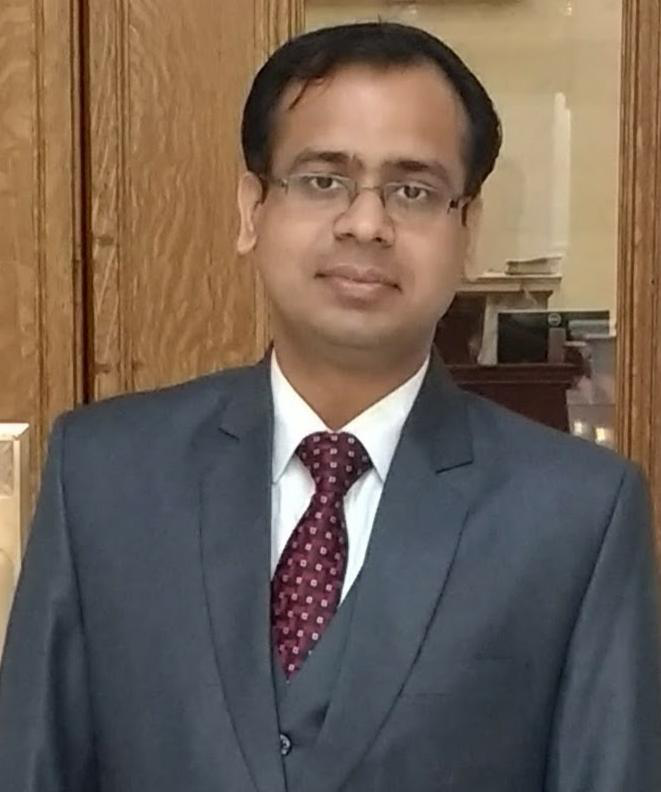
Bio: Prof. Dr. Sachin Sharma, Associate Dean, International Affairs and Professor, Department of Computer Science and Engineering at Graphic Era Deemed to be University, Dehradun, Uttarakhand, India. He is also Co-founder and Chief Technology officer (CTO) of IntelliNexus LLC, Arkansas, USA based company. He worked as a Senior Systems Engineer at Belkin International, Inc., Irvine, California, USA. He received his Ph.D. degree in Engineering Science and Systems specialization from University of Arkansas at Little Rock, USA and M.S. degree in Systems engineering from University of Arkansas at Little Rock. Dr. Sharma has authored/coauthored over 185 publications in the form of books, patents, and papers in refereed journals and conference proceedings. He holds thirty US, Indian, and international patents in the area of IoT, wireless communication and AI. He has also served as a Guest Reviewer for several Special issues of IEEE/ACM Transactions. His research interests include wireless communication networks, IoT, Vehicular ad hoc networking and network security.
Panel duration: (Total 90 minutes: 60 min discussion, Total 30 min Q&A encouraged as interspaced)
Timeline for expert discussion: 50 minutes
Moderator time: 10 Minutes
Q & A for audience: 30 Min (encouraged as interspaced between discussions as well as toward the end)
